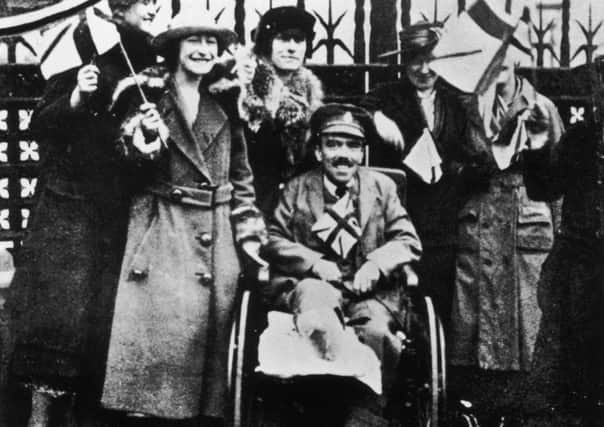Book review: The Lie by Helen Dunmore


The Lie
BY Helen Dunmore
Hutchinson, 304pp, £17.99
Daniel, the narrator of Helen Dunmore’s new novel, is a man who has lived too close to death, and been there too often. He is a survivor of the trenches of the Western Front, assailed by terrible memories he cannot rid himself of. One concerns the fate of his closest friend, Frederick, from whom he was divided by class, money and, in the war, rank, but with whom he was united in an intense brotherhood. Frederick is dead, and this is another occasion for guilt, if only perhaps survivor’s guilt. His ghost is a recurrent presence, or so it seems to him.
The only person with whom he can share his feeling for the dead man is Frederick’s sister, Felicia, herself left a widow with a baby girl. The three were childhood friends when Daniel’s mother looked after the other two, and Daniel had the run of their father’s library. He acquired a love of poetry and fiction and discovered the ability to get a poem by heart, even – a little improbably? – on a single reading.
Advertisement
Hide AdNow, back from the war in his native Cornwall, and traumatised, as we would say today, his mother dead, he lives first in a shack on land belonging to a poor old woman, a cottager out, one may think, of a Thomas Hardy novel. When she falls ill, he cares for her, giving her milk from her goat, and when she dies, he tells nobody. Instead he buries her, as he believes she wished, on her own land.
He moves into the cottage, scouring it completely, digs the garden, plants vegetables, and aspires to live in self-sufficiency. When anybody asks about old Mary, he says she is ill and weak and doesn’t want company. She never had much anyway. The concealment of her death – which is of course a breach of the law, since all deaths must be reported and registered – is the lie of the title. But it is a lie which seems right to him; hers was a better death, and her grave a better place, than those he knew in the trenches.
The novel alternates between Daniel’s description of his daily life, detailed, precise, and written in the present tense, and his wartime memories. One understands that he is not so much trying to rebuild his life as to preserve his sanity. The physical labour of cultivating the land is an attempt to keep the demons at bay. But they cannot be denied. Daniel cannot live as an island.
When he meets Felicia again, memories of Frederick press hard upon him. Some are grim; he recalls with horror the savage, even demented, punishments Frederick’s father inflicted on the boy. But others are happy. The best days of his childhood and youth were passed with him. Yet the circumstances of Frederick’s death cannot be forgotten. Somewhere his friend is waiting for him.
“‘He’d want you to be alive,’ says Felicia. I feel the words go past my ear on her breath. I want so much to believe them, and yet inside me there’s the part that’s gone, seared, done for. I wish her words could touch that place.”
Helen Dunmore’s last novel was a remarkable ghost story, The Greatcoat, effective because, though the manifestation of the supernatural itself might not have been wholly convincing, the characters’ credibility. was clearly established The same may be said of Frederick’s role in this novel. His presence is alive in Daniel’s mind, though only in Felicia’s memory. An earlier Dunmore novel told of the horrors of the siege of Leningrad in the Hitler War. That showed her ability to enter imaginatively into extreme physical and emotional states.
Advertisement
Hide AdThat same ability is evident here. Little that Daniel does is rational, even though it is done capably. He cannot escape the knowledge of where he has been. He remembers a soldier who went to collect a bundle of sticks to make a little fire, raised his head for a moment on his return, and was shot. “I watched as the stuff flew out of him and then I turned away. I touched my own head after. His fire still burned and I drank my tea.”
He couples this memory with the thought that if he now tells the doctor that old Mary died and he buried her, he will be punished. “They’ll take me to Bodmin gaol. They could hang me there.” This makes no sense, and yet it makes complete sense as a representation of his state of mind, his disordered judgment and his transferred guilt.
Advertisement
Hide AdHelen Dunmore is a very accomplished novelist with a fine quality of imagination. The publishers are pulling out the stops to publicise this novel “anchored to the World War I centenary”. It’s good enough to do without all that, and in any case 2014 is the centenary of the outbreak of the war, while this is a post-war novel which does not seek to capture the spirit in which men went to war in 1914. Nevertheless it is a very good and moving piece of imaginative reconstruction. Moreover, as I have said, it’s also a ghost story, and this is appropriate, for the ghost of that war still haunts us today.